 Book Now
Book Now
Wisdom Tooth Extractions - Murphy, TX
Frustrating Wisdom Teeth? We’ll Remove Them
Did you know that the last adult teeth to erupt come during the late teens or early adult years? Before oral hygiene became important, these wisdom teeth (which are also known as third molars) compensated for any prior tooth loss. Nowadays, however, many patients don’t need these extra teeth. In fact, many simply don’t have the room, which can create a host of problems for your smile. If you or your child has wisdom teeth that may need to come out, give us a call. Dr. Gandhi can provide an honest evaluation and go through your options for wisdom tooth extractions in Murphy.
Why Choose Murphy Dental Home for Wisdom Tooth Extractions?
- Experienced, Highly Trained Dentist
- Sedation Options Offered
- Teens and Adults Treated
What Are Wisdom Teeth?
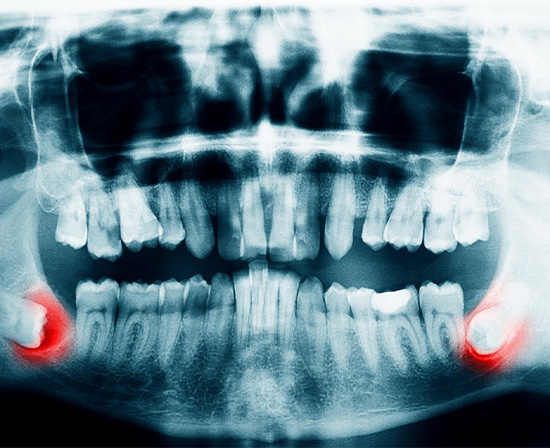
Wisdom teeth are also known as third molars, and they typically erupt between the ages of 17 and 25. While once considered crucial when it came to eating dense foods throughout early human civilization, they no longer serve a necessary purpose. As times changed and diets became less reliant on coarse meats to gain valuable nutrition, the facial structure of humans transformed as well with jawlines becoming narrower. As a result, it left little room for these teeth to erupt, which, in turn, continues to cause issues inside the mouth.
Why Do Wisdom Teeth Need to Be Removed?

Wisdom teeth are commonly extracted. At times, they have cavities or are impacted, meaning they are trapped in the jaw, which can cause excruciating pain. Sometimes they come out at the wrong angle which may damage neighboring teeth, or you may not have sufficient space in your jaw to accommodate your new molars. Sometimes it’s best to extract wisdom teeth if they have the potential of causing problems to avoid complicated treatments down the road.
What to Expect From the Wisdom Teeth Procedure
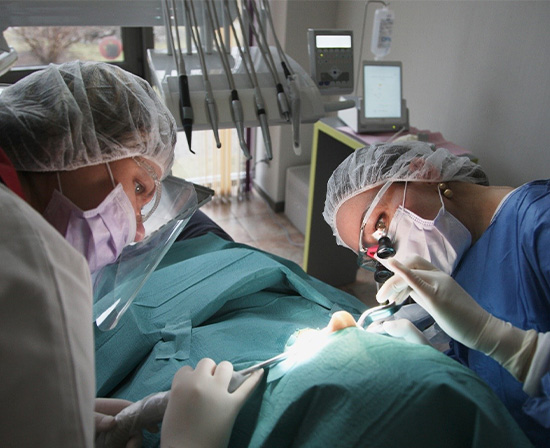
You will meet with your dentist in Murphy to discuss your candidacy for wisdom tooth extraction. Taking digital images of your smile, we will review our findings and determine if removing these teeth is in your best interest. If so, we’ll prepare a treatment plan that explains the type of procedure you will undergo as well as any projected costs. If your teeth are impacted, we will likely refer you to a specialist in the area to complete the procedure.
On the day of your surgery, you will receive local anesthesia to numb the designated areas of your mouth. If necessary, you may also inquire about sedation dentistry. Once you are comfortable, we will begin to remove your wisdom teeth. If they have partially erupted and are barely above the gumline, we will likely be able to use dental forceps to gently rock the tooth back and forth until it detaches. However, if the tooth is impacted and pressing against your natural teeth structures, it will be necessary to make a small incision inside the gums. Using specialized dental instruments, an oral surgeon will remove these teeth in sections so that there are minimal issues with the extraction process.
Recovering From Wisdom Teeth Extraction

Once your procedure is complete, you can expect that getting adequate rest will be what is in store for you when you return home. It will take time for the anesthesia to wear off, so we recommend that you take an over-the-counter pain reliever or a prescribed painkiller before any discomfort develops.
In the initial days after your surgery, there is likely to be some minimal bleeding and swelling. Blood clots will form, and it is essential that you take special care not to dislodge them by rinsing vigorously or sipping through a straw. Good oral hygiene will be necessary, but you must be careful when cleaning near your surgical sites, as you could cause a blood clot to dislodge and create a painful dry socket.
Using a cold compress can help to minimize discomfort, and you’ll want to make sure that you stick to soft foods for the first few days. Once your mouth feels a bit more normal, you can begin to incorporate other types of food.
During this time, make sure you do not smoke or use tobacco, spit, or engage in any strenuous activity.
Understanding the Cost of Wisdom Tooth Extractions
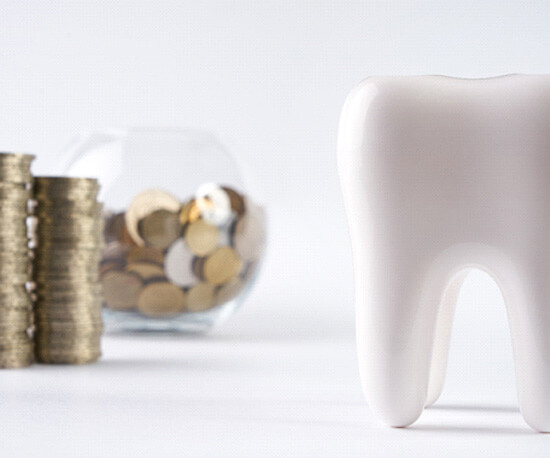
Wisdom teeth extractions are typically the sort of thing people want to get over with as quickly as possible. We therefore endeavor to make every part of the process as easy as possible, including payment.
We’ll be able to give you a better sense of what you can expect to pay once we meet you in person, but before then here’s what you should know about the cost of a wisdom tooth extraction.
Factors That Can Impact the Cost of Wisdom Tooth Extractions
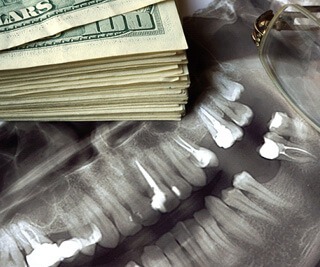
How much your wisdom tooth extraction is going to cost will come down to a confluence of several factors. We’ll discuss each of them in more detail when we meet you at your consultation, but here’s a brief overview in the meantime.
- How many wisdom teeth are going to be removed. Not everyone is born with all four of them.
- If your wisdom teeth are impacted, it may increase the complexity/cost of the procedure. Soft tissue impactions, where the teeth are partially emerged from the gums, will typically be easier to manage than bony impactions embedded in the jaw.
- The sort of sedation of sedation you use will heavily impact the cost of your treatment.
Does Dental Insurance Cover Wisdom Tooth Extractions?
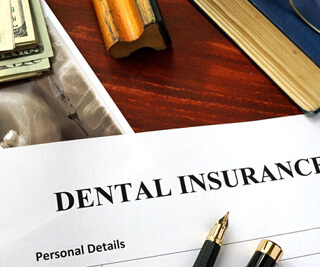
While dental surgeries aren’t always covered by insurance, wisdom teeth extractions are a notable exception. Provided that you’ve met your deductible and have yet to exceed your yearly maximum, you can often expect to have a portion of your dental care covered by your insurance. Still, it’s best to consult with your dental plan to make sure that your treatment will be covered.
Other Options for Making Wisdom Tooth Extractions Affordable

If you don’t have insurance, we have alternatives that can make the care you get from us affordable. For one, we have an in-house membership plan that makes for a decent alternative to insurance, offering you 20% off of the treatments you receive from us for just $149 a year.
We also work with financiers that can help you split up the cost of your services. CareCredit, for example, offers low-to-no interest financing terms to patients who qualify. If you’re interested in how these services can make care more affordable, give us a call and we’ll be happy to talk you through them.
Wisdom Tooth Extractions FAQs

At Murphy Dental Home, we understand that getting your wisdom teeth removed can sound scary. Our team is here to help you see that this procedure is nothing to fear and that it can lead to less pain and a healthier smile in the long term. It’s understandable to have some questions or concerns about wisdom tooth extractions in Murphy, so that’s why we’ve answered many of the most common questions below. Don’t be afraid to reach out to us if the answer you’re looking for isn’t on this page!
Is Wisdom Tooth Removal Painful?
Your comfort is always our top priority, and our team will go above and beyond to minimize your discomfort throughout the wisdom tooth removal process. Before beginning the procedure, we’ll administer local anesthesia, ensuring your mouth is completely numb. You’ll also probably be under dental sedation, which can lessen your brain’s ability to register pain.
After your procedure, some post-op soreness and discomfort is normal. However, this should only last for a few days to a week at most. Your dentist in Murphy will provide you with aftercare guidelines to make your recovery as smooth and comfortable as possible.
What Can I Eat After Wisdom Tooth Surgery?
As with any oral surgery, it’s important to maintain the right diet after your wisdom teeth are extracted. For the first three to seven days, you’ll want to stick to mainly liquid or soft foods to avoid placing too much pressure on your still-healing gums. You should also stay away from hot or spicy foods, as they too could irritate the gum tissue.
While you’re recovering from wisdom tooth surgery, try to primarily eat things like:
- Yogurt
- Pudding
- Cottage cheese
- Ice cream
- Scrambled eggs
- Mashed potatoes
- Applesauce
- Thin soup that isn’t hot
When Can I Use a Straw After Wisdom Teeth Removal?
Drinking through a straw is one of the worst things you can do after wisdom tooth extractions. The force of the suction created can cause the blood clot over the extraction sites to come off. Known as dry socket, this condition is not only extremely painful, but it can also prolong the healing process.
While there is no hard and fast rule about how long you should wait to use straws again, we typically recommend waiting at least three days. If it’s possible to wait until your mouth feels completely back to normal, it’s not a bad idea to do that.
What’s the Best Age to Get Wisdom Teeth Removed?
There isn’t a universal answer to this question, but it’s generally best to remove the wisdom teeth when during a person’s late teen or early adult years. It’s definitely possible to extract these teeth when a patient is older, but the procedure and recovery become more complex since the teeth’s roots grow longer with age. Additionally, the wisdom teeth may become impacted the longer we wait to remove them, leading to all sorts of oral health problems. If our team suggests getting your wisdom teeth extracted, it’s always best to get the treatment taken care of sooner rather than later.
I Need a Dental Checkup & Cleaning I am Looking for a Dentist for My Child I am Worried About Bleeding Gums I am Concerned About Sleep Apnea Therapy I am in Pain & Need Help I Have a Cavity or Broken Tooth I am Missing One or More Teeth I Want to Enhance My Smile I Want a Straighter Smile I am Nervous/Afraid of the Dentist View Our Services